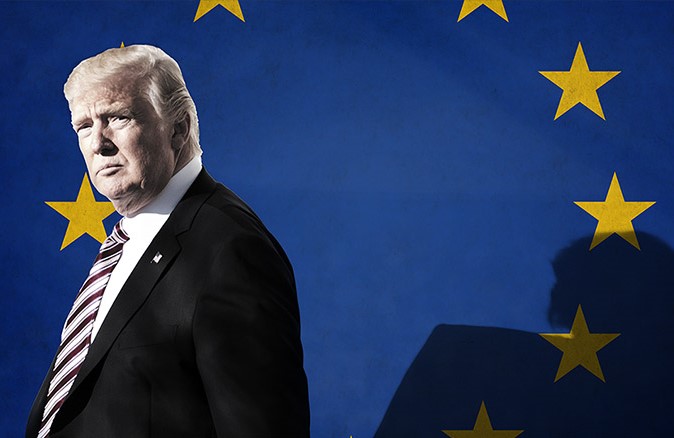AFP photo
By
Tom Arms
The Western Alliance is in disarray. Americans are sick of picking up the tab for protecting a rich Europe from a communist threat which no longer exists. Europe is terrified at being abruptly left in the lurch facing a corrupt, authoritarian Russian threat which has replaced the communist one.
In the meantime, Britain, the traditional number two in the Western Alliance, voted Brexit and pulled the rug out from under the EU–the political and economic arm of the alliance’s European end.
It is time for a refresher course in the Western, or Transatlantic, Alliance. It is time for a re-examination of the purpose of the alliance. So here goes, Alliance 101.
Franklin Roosevelt had a vision of a post-war world run through a United Nations headed by World War Two allies—America, Britain, China and Russia. France was a reluctant afterthought.
Each of the “great powers” was given a permanent seat in the newly-formed UN Security Council. With the seat came implied responsibility for a slice of the world—America was the Western Hemisphere; Britain (with French help) Western Europe, Africa and the Middle East; Russia Eastern Europe and Central Asia and China the Far East.
Unfortunately the dream was nothing more than that. A Britain prostate from two world wars still had to organise a peaceful retreat from empire. The French were in a mess. The Chinese were in a bigger mess and faced a civil war. Only the Russians and Americans emerged better off.
Wartime Britain pawned everything but the crown jewels to the US. America was amazingly generous with its repayment scheme but still ended the war with half of the world’s GDP and the only nuclear arsenal. The war cost Russia 20 million lives, but it was in control of Eastern Europe and a huge army poised to roll into a defenceless Western Europe.
Britain did its best to hold back the ideologically-driven Kremlin. It intervened in the Greek civil war and stopped Russian incursions into Turkey and Iran. But it needed help and turned to the wealthiest country in the world. America responded first with the Marshall Plan and then agreed to join in the creation of the North Atlantic Treaty Organisation.
Four months later, in September 1949, the Soviets tested the first atomic bomb. They were quickly followed by the British in 1952 and the French in 1960. But as far as nuclear weapons were concerned, it quickly became apparent that that the only member of the Alliance that could compete with the Russian-controlled Soviet Union was the United States. And that applied to conventional forces as well.
So why did Washington abandon 150 years of isolationism to march to Europe’s rescue? There is the kith and kin argument. Most Americans came from somewhere in Europe and there is much talk about cultural, social, historical and philosophical links. There has also been—until recently—a perceived common liberal global goal of encouraging representative democracy, international cooperation through multinational organisations, free trade and the rule of law.
Of course there are other reasons. America needs European markets for its goods—worth $270.3 billion in 2016. And last—but certainly not least– it has been painfully proven that wars in Europe quickly escalate to a global dimension which cost American money and lives.
So, since 1947 America has extended its conventional and nuclear umbrella to Europe; encouraged European unity and worked with Europe at the United Nations and its international agencies. At the same time, both sides of the Atlantic have coordinated their policies to insure the biggest possible positive impact in every corner of the globe.
Overall, the result has been good. The Soviet Union collapsed and the world as a whole has seen the longest period of peace and prosperity since modern man emerged 35,000 years ago—especially in Europe. Things are so good that people have dared to forget history and dream of a post-conflict Europe. Such dreams are more dangerous than the Soviet threat.
Tom Arms is editor of LookAheadnews.com and author of The Encyclopedia of the Cold War.
Sign up now for the weekly diary of world news events at www.LookAheadnews.com.
LookAhead Radio World Report for week commencing 27 February 2017:



No Comments Yet!
You can be first to comment this post!